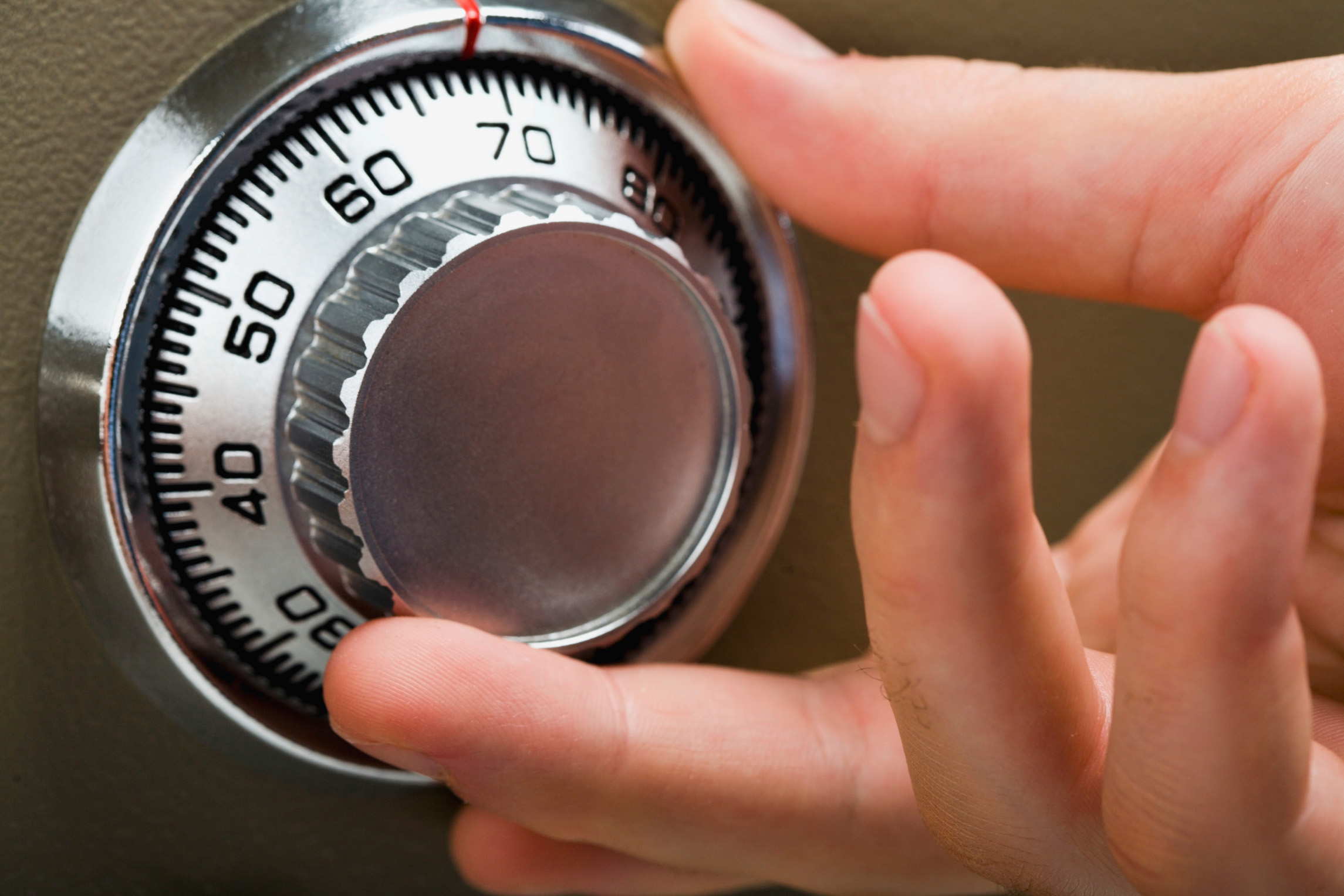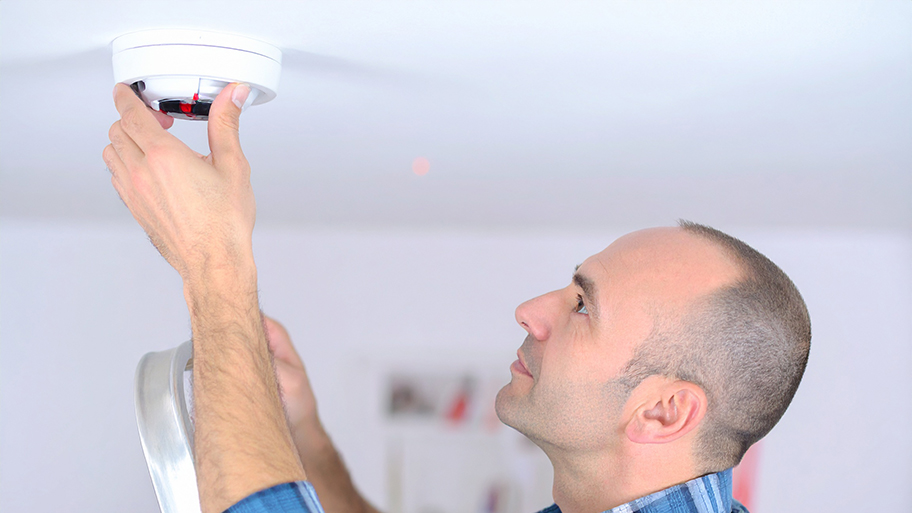
Motion-sensor lighting costs vary greatly because they have so many customizations available. Learn more by using this cost guide about motion-sensor lights.
Are your eyes the only ones on your home?


Wi-Fi security systems have the potential to be hacked.
You can increase the security of your cameras with a few tricks and with safe practices.
Wi-Fi security cameras are easy to install and remove.
According to the United States Department of Justice, 8.7 million households experienced property victimization in the United States in 2022—that includes burglary, trespassing, auto theft, and household theft. As crime increases, many people are installing wireless security cameras in their apartments and homes to keep an eye on things while they are away. But are Wi-Fi security cameras safe?
While they have their benefits, they also come with some risks. Let's review how secure Wi-Fi cameras are and the pros and cons to help you decide if they are the best security system for your residence.
The bad news is that all home security systems can be hacked if they are connected to the internet. However, Wi-Fi security cameras are easier to hack than wired cameras. Wi-Fi cameras have a wireless internet connection to record and transmit footage via the cloud.
Practice password safety with your Wi-Fi network. Changing your password regularly can help prevent hackers from accessing your security devices.
Wi-Fi security cameras can be hacked with various methods, such as:
Default password exploitation: Wireless devices have default usernames and passwords when you purchase them. If you don't change them, hackers can find and use this information and tap into your cameras.
ARP spoofing: Hackers use this tactic to trick the camera into sending data to the hacker's computer instead of your device.
Signal jamming: Criminals use specialized electronic devices to jam the signal to your Wi-Fi security cameras so they are unable to record or send footage.
There are precautions you can take to make your security cameras more secure, but any system that is online has the potential to be compromised by criminals.
On the other hand, having a home security system can assist in finding a criminal if you were to be a victim of a burglary. Let's dive into the pros and cons of Wi-Fi cameras and then discuss how you can keep your system secure.

Wi-Fi security cameras are popular for many reasons. Here are a few of their advantages and disadvantages.
Easy to install: In most cases, Wi-Fi security systems can be installed yourself if you are a handy DIYer.
Portable: You can relocate cameras around your residence or take them with you if you move.
Easy to operate: After installation and set-up, it's easy to access your cameras' feeds from your mobile device.
Easy to upgrade system: You are able to easily add more cameras to your home security system if you need to.
Service can be disrupted: Poor Wi-Fi connections can lower video quality or even disrupt your security camera's service and prevent it from recording and sending footage.
Monthly subscription fees: There can be fees associated with the cloud storage you use.
Need to replace batteries: If you choose a completely wireless system, you must monitor the batteries and replace them to ensure your system is always up and running.
More prone to hacking: Wi-Fi security cameras are easier to hack than a wired home security system.
Any electronic device that accesses the internet has risks. Still, there are some things you can do to increase the security of your cameras. Use these tips to keep your wireless cameras safe:
Purchase from a reputable company: Make sure you do your research and purchase your equipment from a reputable local security company. Check reviews and buy cameras that have built-in security features.
Create a strong password: One of the most common reasons Wi-Fi security cameras are able to be hacked is because the default passwords are not changed. Do not use birthdates or addresses. Make sure to use a combination of letters, numbers, and unique characters to create a password that is hard to guess or hack.
Update firmware: The software that operates your security cameras needs to be up to date to prevent glitches and security bugs. Always update the firmware for your security cameras and the app you are using to access them.
Utilize two-factor authentication: Add an additional layer of protection to your Wi-Fi security cameras by setting up a two-step verification with an authenticator app such as DUO Mobile or Google Authenticator. Anyone trying to access the cameras will have to enter your username, password, and special code to log in.
Change your password annually: If you have had no signs of your cameras being compromised, you should still update your password at least once a year to keep your cameras secure.
You may need to explore alternatives to Wi-Fi security cameras if your local network is sluggish or non-existent.
Wired Security Cameras: These cameras are directly connected to a recording device via cables, providing a more stable connection and reducing the risk of hacking compared to wireless options.
Cellular Security Cameras: Operate using a cellular network instead of Wi-Fi, allowing them to function in remote areas where Wi-Fi might be unavailable, making them ideal for off-grid locations.
Battery-Powered Cameras with Local Storage: These cameras store footage locally on an SD card, eliminating the need for an internet connection and reducing monthly storage fees.
PoE (Power over Ethernet) Cameras: Use a single Ethernet cable for both power and data, offering a reliable connection and easy installation without the need for a separate power source.
Hybrid Systems: Combine both wired and wireless technologies, providing the flexibility to tailor a security setup that best fits various needs and locations within a property.
If you opt for a simple Wi-Fi security camera system, you can install it yourself if you are comfortable getting up on a ladder and are tech-savvy. Purchasing a home security system can cost between $500 to $1,000 if you install it yourself, but you can get cameras alone for a lower cost.
However, you may want to consider hiring a professional security camera company near you to ensure the job is done right and save yourself some time and labor. If you hire a professional to install a system you have purchased, labor can cost between $120 and $600.
Wireless cameras will not work without an internet connection. A Wi-Fi camera uses the internet to transmit footage and store the information in cloud-based software. However, there are wireless cameras that you can buy that allow you to record and save footage on an SD card instead.
Wi-Fi signals can be weak or disrupted if your router is too far away from your security cameras. You may need to invest in a Wi-Fi range extender to boost the Wi-Fi signal. Building materials such as concrete walls or metal can also block the signal. If you are having issues with your signal, you can try moving your router to another location in your home.
You should always install cameras at exterior doors and windows. Other areas where you should place cameras are your front and back yards, the garage and driveway, common living areas, hallways and staircases, and the basement. Remember, you can start with a small Wi-Fi security camera system and always add more cameras if needed.
From average costs to expert advice, get all the answers you need to get your job done.

Motion-sensor lighting costs vary greatly because they have so many customizations available. Learn more by using this cost guide about motion-sensor lights.

Discover wall safe installation cost details. Learn about average prices, key cost factors, and tips to save on your wall safe project.

How much does it cost to install a doorbell camera? It depends on whether you plan to DIY or hire a pro. Learn about different models and their power sources, too.

Every homeowner should learn how to replace a hardwired smoke alarm, which you must do at least every decade. This guide will talk you through the process.

If your security lights aren’t working the way you expect, you may need to troubleshoot. Learn how to reset a motion detector flood light with this guide.

There are many types of window alarm sensors. Find out which is right for you in our easy-to-read guide.